This has nothing to do with weather...but we are making bread and I could not pass up a lesson on the science of bread making. This is a simple lesson. We could expand but really just wanted to learn about yeast!
In 1857, Louis Pasteur discovered that yeast is a living organism whose activity causes fermentation.
Book: The Story of Louis Pasteur by Alida Sims Malkus
http://web.ukonline.co.uk/b.gardner/pasteur.htm#ferm
http://en.wikipedia.org/wiki/Yeast ( more info than you probably need!)
Yeast is a live single celled fungus. 

Wild yeast spores are constantly floating in the air and landing on uncovered foods and liquids. These wild varieties contributed some of the earliest kinds of sourdough bread mixes which did not depend on adding starter cultures.
 Wild Yeast
Wild Yeast
How does yeast work: http://www.botham.co.uk/bread/yeast.htm
The Gas connection: http://www.exploratorium.edu/cooking/bread/activity-yeast.html
Gluten and Gliadin: http://www.exploratorium.edu/cooking/bread/glutengood1test.html
The Job of Each Ingredient:
http://www.redstaryeast.com/kneadednotes3.html
https://www.dow.com/facilities/namerica/michigan/chemweek/pdfs/bread.pdf
Experiments and Lessons:
http://www.lesaffreyeastcorp.com/SoY/index.html
http://www.zum.de/earthquake/bread.html
As little as two pounds of yeast starter can raise 500 pounds of bread dough.



Other fun stuff:
Bread in a bag :http://pbskids.org/zoom/activities/cafe/breadinabag.html
amino acids organic acids that are the building blocks of proteinsanaerobic a process which takes place in the absence of oxygen
catalyze to speed up a chemical reaction
chemical bond the forces of attraction that bind atoms together in a molecule
chemical reaction a process where substances are changed into new substances
enzyme special protein molecules that speed up chemical reactions in living cells. Enzymes are biological catalysts.
fermentation a process where sugars are transformed into carbon dioxide and alcohol by the action of yeast enzymes
leavening substances that cause fermentation
polymer large molecules formed by linking together many small molecules. Proteins are polymers of amino acids.
Videos:
http://pbskids.org/lions/stories/makebread.html ( great for younger kids)
There really is no one way to make a loaf of bread. Every recipe is slightly different. Some are knead and some no knead. Some are done with two rises...some with one. So experiment and have fun in the kitchen! Enjoy the science of yeast!

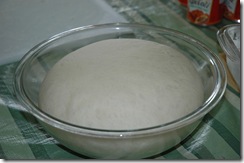

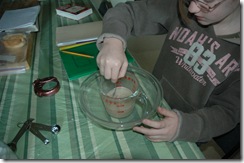
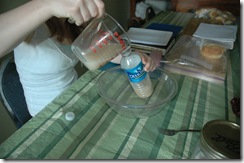
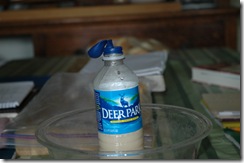
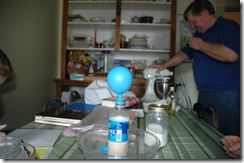
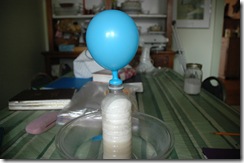

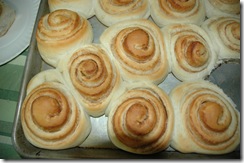

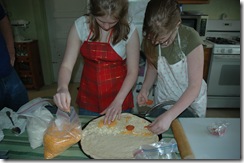
No comments:
Post a Comment